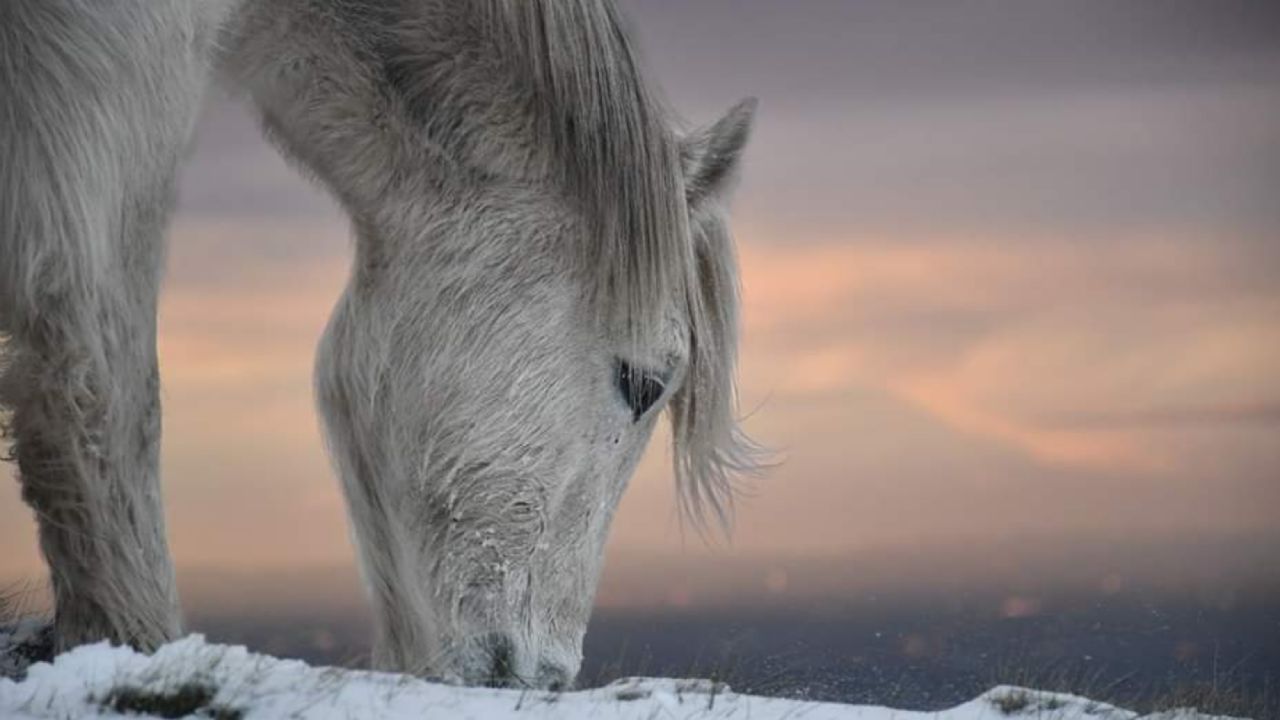Why do we recommend feeding horses from ground level?
How does the horse's jaw work? What happens if horses eat above ground level? Read the article to learn more...

Cosying up in front of the fire with a hot chocolate and a dog in your lap paints an idyllic picture for many, but winter is a dreaded word for almost all equestrians - and many of us are still feeling triggered by last year’s horrendously wet and muddy edition.
That is the problem with winter, we never know what kind of winter is coming!
Not only the weather, but a change in daylight availability and necessary management can mean a whole host of changes for our horses. When it comes to feeding, this can be a fine balance to manage. Horses who get less turn out and less exercise may become more excitable and fresher to handle, requiring a decrease in digestible energy intake, yet those who rely on grass to maintain their weight, may instead require higher nutritional intake.
Turning to cereal based feeds results in a high starch intake, affecting excitability and also increasing the risk of gastric ulcers due to the breakdown of starch in the stomach, lowering pH and increasing acidity. Winter is already a risk factor for ulcers. More time stabled can increase the risk of long gaps without food and stress, both impacting the likely development of ulcers. Utilising low starch but highly nutritious forages – with a low sugar level – can help sustain them through winter but with more appropriate energy levels.
Thoroughbreds who often do well on good grass can suffer seasonal weightloss; Blue Bag Grass Pellets offer the ideal substitute for this whilst Warmbloods may do best on Lucie®Nuts with higher protein intake for their larger muscle bulk.
Native types and good doers can be kept full on Organic Lucie Stalks which offer a time consuming chew and quality protein, but low feed value.
For those who are poor at drinking in cold weather PuraBeet is the ideal way to increase fluid intake, but also fill the hindgut with soluble fibre. A full hindgut will keep them warm through the process of microbial fermentation as an inbuilt central heating system! Brix are ideal for occupying easily bored horses and Calm Balance + may have a settling effect for those who get stressed being indoors for longer.
Make any necessary changes to management gradually, slowly increasing or decreasing feed and hay amounts to allow the digestive system to adapt. Also slowly increasing time spent stabled will minimize the risk of colic but also stress due to sudden changes in routine that can easily upset them. Taper off workload gradually if you are turning them away for the winter.
We are always here to help with both feed and management advice if you or your horse are struggling to adapt or find the right energy balance.
Let us all hope the winter is kind, with a lot less of the wet stuff!
How does the horse's jaw work? What happens if horses eat above ground level? Read the article to learn more...
We're thrilled to be adding an exiting new event to the calendar for 2026!
Horses’ teeth change throughout their lives - they are continually growing and continually wearing, as they chew and grind their grazing and forage.